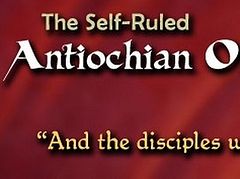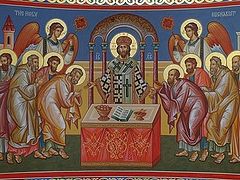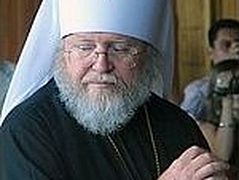Source: Notes on Arab Orthodoxy
November 18, 2015
"I am the true vine, and My Father is the vinedresser... you are the branches" (John 15:1,5). No doubt, by the Parable of the Vine and the Branches, Jesus intended to "explain to us the importance of love that is connected to Him and the measure of what we gain by being united to Him. Therefore He says that He is the vine as a lesson and a parable. The branches represent those who are united to Him, tied to Him, attached to Him, and who share in His nature by their acquisition of the gift of the Holy Spirit" (Saint Cyril of Alexandria).
"Every branch in Me that does not bear fruit He takes away, and every branch that bears fruit He prunes, that it may bear more fruit" (John 15:2). Saint Cyril warns the faithful about not tying faith to works and says, "[If we content ourselves with] bare, abstract confessions of faith, without holding it with the bond of unity to courageous works springing forth from Love, then we will be dead and fruitless branches. Faith without works is dead, as the Holy Apostle James says [in his Catholic Epistle 2:20]. So if the branch remains attached to the vine without fruit, know that such a person shall face the shears of the vinedresser. He will cut him off and throw him into the fire, like useless trash." Clement of Alexandria (d. 216) says, "The vine that is not pruned becomes firewood. Such is the state of man. The word is a sword [yes, in the Holy Gospel, the sword symbolizes the word of God] that cleanses the deformation of the branches and drives the soul to bear fruit and to not be absorbed in pleasures."
The sole condition of the bond of unity between Christians is "piety and holiness," not any other worldly thing. Therefore, Cyril himself says, "Christ wants His disciples to be garbed in unity of thought and will and to be united in soul and spirit by the bonds of peace and love for one another. He wants them to enjoy an inseparable and indissoluble unity, that their wills might not resemble that which is in the world, attached to seeking pleasures, but that they maintain the power of love in the unity of piety and holiness." Christian unity must not eliminate diversity, following the model of the Most Holy Trinity, where there is unity in diversity and diversity in unity.
"Abide in Me, and I in you. As the branch cannot bear fruit of itself, unless it abides in the vine, neither can you, unless you abide in Me" (John 15:4). Blessed Augustine (d. 430) says, "One who thinks that he bears fruit of himself and not from the vine is not a Christian.... Those who say 'We are righteous of ourselves'... This is the height of pride."
In view of the difficult circumstances through which our countries are passing, we must cite the words of Saint Justin Martyr (d. 165), the philosopher who was born in Palestine, as through he were addressing them to us, so that we might face these circumstances steadfast in faith. Justin says, "It is clear that no one is able to terrify and subjugate those of us throughout the world who believe in Christ. Despite our being beheaded, crucified, cast to wild beasts, chains and fire and every other type of torment, we do not abandon our confession. It is clear that the more these things happen, those who are pious before God increase in the name of Jesus. If someone severs parts from a fruitful vine, it will sprout more branches, flourishing and bearing fruit. This very thing is what happens to us. The vine that Christ our God and Savior planted is His people."
Justin's words come true if Christians remain faithful to their Lord and His teachings and if their unity is not based on plans that contradict their Gospel principles. Christian unity is either based on faithfulness to Jesus Christ or you should call it something else.




